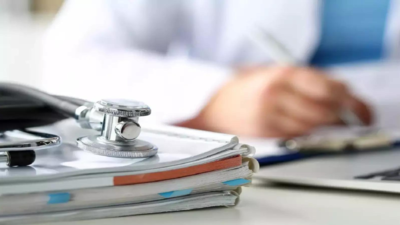
NEW DELHI: How well-equipped are India’s sub-centres (SCs) – the state’s support system that people facing health issues first reach out to – especially those in rural India, to manage basic medical conditions such as hypertension, or high blood pressure, and diabetes?A survey carried out for the purpose in 19 districts of seven states by a team of researchers from Indian Council of Medical Research (ICMR) and World Health Organisation (WHO), among others, did not paint a very flattering picture. According to the survey results published in the latest issue of Indian Journal of Medical Research (IJMR), only about 4 in 10 sub-centres are in a position to treat hypertension and diabetes, with several of the rest not even having basic medicines to manage the conditions.Out of 105 SCs assessed, nearly one-third had stock-outs of tablet metformin (anti-diabetes medication), and nearly half (45%) reported stock-outs of tablet amlodipine, used to manage high blood pressure. The median duration of stock-outs for the medicines ranged from one to seven months. “These medicines were better available at govt medical colleges compared to any other levels of public health facilities,” the IJMR report stated.The survey also revealed a shortage of specialists at the Community Health Centre (CHC) level – this was also highlighted in the rural health statistics report of 2020-21, which showed a shortfall of physicians (82%) and surgeons (83%) at CHCs.“(The) ICMR-India Diabetes Study (ICMR-INDIAB) reports evidence of a non-communicable diseases epidemic spreading to rural areas in India in addition to the urban areas due to changes in lifestyle. Therefore, improving the preparedness of SCs will further enhance the primary care services closer to the homes of the people,” the researchers pointed out in the study.They added: “Govt of India has already accelerated its efforts towards strengthening Comprehensive Primary Health Care (CPHC) for achieving Universal Health Care by committing resources and efforts through the Prime Minister’s flagship Ayushman Bharat Health and Wellness programme”.India has the second highest number of adults (20-79 yrs) with diabetes in the world, and approximately 3% of the total deaths in India in 2019 were attributed to the disease. The number of people suffering from hypertension is also on the rise. Experts say easy access to medicines to manage the two conditions at early stages can help prevent serious complications and slash the risk of negative individual, social and economic outcomes.














